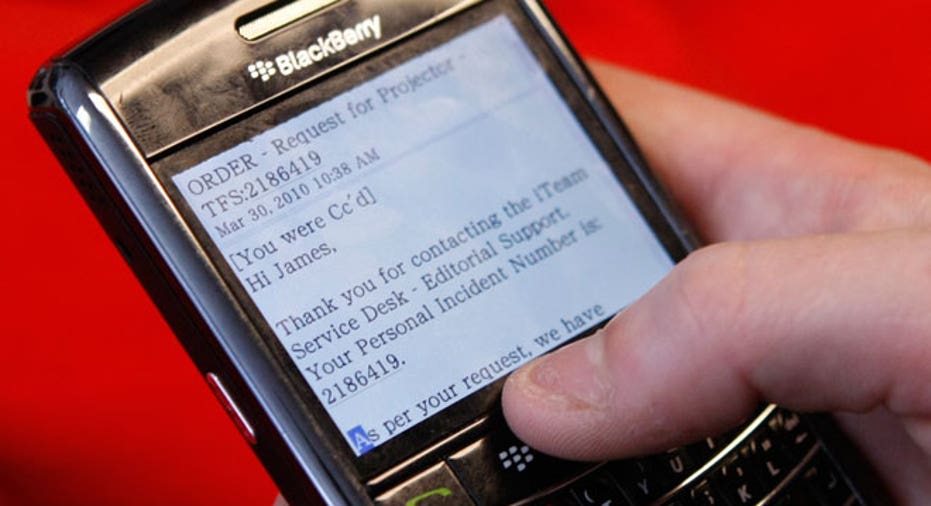Phone Apps Keep Your Health Insurance Handy

There are smartphone apps for banking, apps for real estate and apps for shopping. There are apps for managing your health insurance benefits, too, but not every health plan has one.
"It's amazing that an industry as big and important as health care is so behind in terms of creating digital and mobile solutions for consumers," says JP Pressley, a Walnut Creek, Calif., independent benefits consultant who works with midsized employers. "People absolutely want mobile apps that allow them to manage their health care, but right now, most of the major carriers aren't offering them."
So far, insurance companies including Blue Cross and Blue Shield and Aetna have begun offering apps that allow members to connect with health care providers as well as the insurer. If the fall open-enrollment season for health insurance finds you shopping around, you may want to consider the availability of apps as you compare plans.
But Pressley notes that the most robust mobile tools aren't coming from the insurance companies. They're coming from third-party vendors that create apps for employers to offer to their workers. So that means access to a mobile health care application often depends more on your company than your health insurer.
If you work for a business that has a health benefits app -- or if your insurer does have its own app -- you should absolutely use it, says Don Sanford, a principal at Buck Consultants, a St. Louis human resources consulting firm that makes customized health benefits apps for companies.
"These apps can simplify how consumers use health care and make it more convenient," says Sanford, whose firm also offers a health care app directly to consumers, called Benefits Genie. "They can also help consumers make smarter decisions about how they spend their benefits."
What Can You do With a Health Care App?
While each health care app is different, most offer a similar suite of tools. With their phones, consumers can:
- File claims.
- Check copays and deductibles.
- Manage a health savings account.
- Find doctors and schedule appointments.
- See lab results.
- Compare prices on drugs and medical services.
- Get wellness tips.
- Get routine medical advice and check symptoms for common ailments.
As with any smartphone app, updates and new features are rolled out all the time.
For example, says Aetna health insurance spokesman Ethan Slavin, one of the newest features of the Aetna Mobile app is the Urgent Care Finder, providing turn-by-turn directions to the nearest emergency room.
While new bells and whistles are welcome, Sanford says what's most important is that an app centralizes all of your health care information in one place.
"If you don't have all of your data accessible at a single point when you need it, you lose a lot of the convenience that these apps are supposed to offer," says Sanford. "So, for instance, if you have an HSA (health savings account), the app needs to integrate that information for it to be truly useful."
Sharing and Privacy Are Key Issues
When you're talking about any app that includes personal information, it's critical to think about privacy, says Sanford. But health care apps present a unique challenge.
No one wants health information to fall into the wrong hands, so app-makers double up on the safeguards by using both password protection and secure servers. But sometimes, says Sanford, you want to be able to share medical information.
"The apps we build for clients include a networking feature that lets you give access to someone and then turn off that access when you want," says Sanford.
That kind of functionality is a boon for parents who might want to leave the baby sitter with more than just the name and number of the family doctor. Parents can allow the sitter's phone to have access to an app and all of its stored information and then rescind access when they return home.
The sharing feature also can be helpful for users who fall ill and want to designate a loved one to help manage their health care if they aren't able to.
When Will More Health Plans Have Apps?
If your health insurance doesn't currently offer a health care app and your employer doesn't either, there's really no telling how long you'll have to wait to manage your health care from the palm of your hand, says Pressley.
The apps are catching on slowly, though many employers, especially midsized firms, have begun looking into them as way of saving money on health insurance, he says. Health care smartphone apps can, for example, help cut down on expensive out-of-network procedures because they can direct employees to in-network doctors, even during emergencies.
Adds Sanford: "The technology is there, and the demand is certainly there. The question is whether the health insurance provider or the employer is willing to take the next step."



















